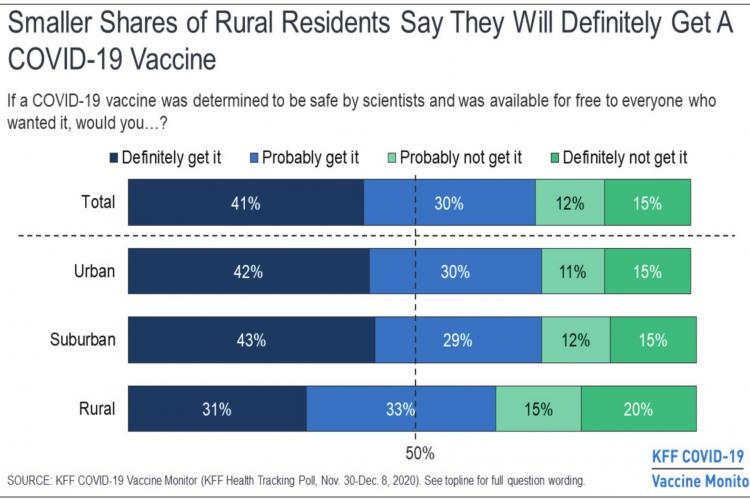Poll finds rural residents resist taking virus vaccine
WHITESBURG, Kentucky – Rural residents are more hesitant than their metropolitan counterparts to get a COVID-19 vaccination, though rural areas have higher infection and death rates from the virus, a new report states.
About a third, 35%, of people living in rural areas said they probably would not or definitely would not get a COVID-19 vaccine, compared to 27% of sub urban and 26% of urban residents answering the same question.
The higher reluctance of rural residents to get vaccinated remained evident as researchers controlled for factors such as age, education and political party affiliation.
Part of the Kaiser Family Foundation’s vaccine monitor project, the poll took place from Nov. 30 to Dec. 8, the week before the first doses of COVID-19 reached the public.
The poll asked about 1,700 respondents whether they would get a vaccine if free, safe and effective.
Party affiliation marked the biggest indicator of whether a person would refuse vaccination. Fortytwo percent of Republicans said they probably or definitely would not get vaccinated versus 12% of Democrats.
Rural respondents gave three main reasons for refusing vaccination:
• They were not worried that they or a family member would get sick from the coronavirus;
• They considered the seriousness of the pandemic overblown; and
• Vaccination is more of a personal choice than a community responsibility.
In December, rural residents were twice as likely to die from COVID-19 than residents of the nation’s largest cities, the Daily Yonder analysis found. In December, there were 35.1 deaths per 100,000 from COVID-related causes in rural areas, versus 17.7 deaths per 100,000 in metropolitan areas with 1 million or more residents. The rural death rate has been higher than the metropolitan rate since mid-August.
Attitudes about vaccination are not fixed. The survey found feelings about vaccination have improved since September, when a similar poll occurred. In September, 63% of respondents nationally said they would probably or definitely get vaccinated. By December, that number had risen to 71%.



